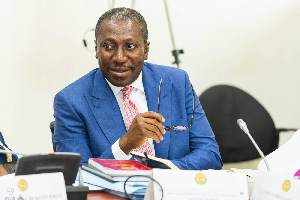The office of former President Rawlings has denied claims that the ex-president received an amount of $3.5 million from a Nigeria state governor ahead of the 2008 elections.
The Daily Guide and the Chronicle Newspapers in their Monday editions alleged the ex-president received the amount from the River State Governor, Rotimi Amaechi, to help finance the National Democratic Congress’ election campaign which saw the party eventually win power.
The newspapers cited a Nigerian website, pointblanknews.com as source of their information.
Justice Ude, manager of the website, in a subsequent interview with Joy News, confirmed the allegations, saying the ex-president benefited from the corrupt practices of the governor.
He said the two are good friends and did not come to him as a surprise allegations that ex-president Rawlings benefited from the largess.
The governor is currently under investigations for money laundering by the Economic and Financial Crimes Unit of Nigeria.
Here in Ghana, it is illegal in the country’s Political Party Code of Conduct to receive funding from foreign nationals or institutions.
But in a rebuttal, aide to the former president, Kofi Adams, said the NDC campaign was never funded by the River State governor.
He told Joy News if such monies were made available to the NDC the party would have waged a more flambouyant campaign than it did in the just-ended elections.
Describing the accusations as “baloney,” the aide insists “nothing like that ever happened.”
He said the ex-president in September 2008, three months to the elections, was guest speaker at a public lecture organised by the River State Governor, but maintained ex-President Rawlings received no money for his services.
Even though he is aware Rotimi Amaechi is under investigations, he said neither the ex-president nor the NDC can be cited for wrong doing.
He suspects a plot by opposition newspapers to divert public attention on corruption allegations leveled against ex-government officials.
General News of Monday, 22 June 2009
Source: jfm
Rawlings received no River State cash-aide
Entertainment











